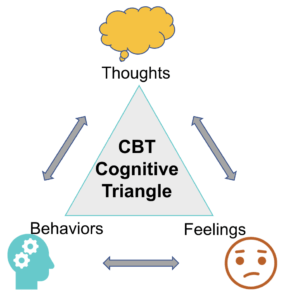Do you know what it feels like to be stuck in a rut? Have you been feeling down for weeks on end with no end in sight? If this sounds like your life, then therapy retreats might be exactly what you need. Therapy is all about getting out of that mental rut and making progress as an individual. In today’s blog post, we’re going to talk about why therapy retreat is perfect for those who want to make their lives better.
What Is Retreat Therapy?
The term “therapy” can be defined as anything that helps someone to get better mentally or emotionally. This could include talking with a friend, journaling, going for a walk, meditation, and much more. For example, You might attend an outdoor weekend session at your favorite campground. A group may go into nature together on one day each week during their lunch break from work.
Therapy retreats are a form of therapy that takes place outside of the traditional office setting. They can be used to address a variety of issues, including but not limited to: addiction, anxiety, depression, and stress.
Retreats offer participants an opportunity to get away from their everyday lives and focus on their mental health. This can be especially beneficial for those who have trouble incorporating therapy into their regular routine.
Techniques Used In Retreat Therapy
Different techniques are being very beneficial in therapy retreats. Each therapist may have their own style and methods that they prefer to use. Some examples include:
- Cognitive-behavioral therapy (CBT)
- Mindfulness meditation
- Breathwork/spiritual connection
- Biofeedback
- Relaxation exercises
In addition to these activities, many sessions also involve some form of discussion about what the participants learned. This helps people tell their stories. They can get feedback from other people in the group and from therapists.
Cognitive-behavioral therapy 
Cognitive Behavioral Therapy (CBT) is a therapeutic method that treats clients by looking at how thoughts influence feelings and behaviors. This medicine has been applied to treat several different types of anxiety. It can be used for people with fear, anxiety disorder, panic disorder, or obsessive-compulsive disorder.
The development of cognitive-behavioral therapy has its roots in behaviorism, which is based on the belief that behaviors that are reinforced persist. Behavioral therapy is when you understand how reinforcement works. It tells you what will happen in the future. Cognitive therapists, however, believe it is important to look at the role thoughts play in behavior.
Mindfulness Meditation
Meditation affects change at the neurological level, influencing how people perceive stimuli.
- Mindfulness meditation does exactly this for individuals who are struggling with anxiety issues. This therapeutic approach uses mindfulness to target cognitive and emotional factors that underlie the anxiety disorder. The result is an improvement in patients’ mood, behaviors, feelings, and thoughts about themselves.
- Mindfulness is a way of paying attention to one’s present moment experience in a nonjudgmental manner. An individual must focus on their feelings, thoughts, and sensations in the body. They can’t worry about past regrets or future concerns. Retreat therapy sessions are designed to help individuals practice meditation techniques that will allow them to learn how to focus on their feelings. By using these techniques, individuals will be able to manage their anxiety symptoms more effectively.
- By allowing individuals the chance to reflect and gain self-insight, retreat therapy sessions can help them change the way they process stimuli. If you do mindfulness meditation, then you will become more aware of why you might be holding on to false thoughts or feelings. This awareness can help you understand your thoughts and behaviors better. And when you know them better, you will be able to make changes on your own.
Biofeedback
- Biofeedback is a technique that uses simple tools like sensors to allow your brain to know about your bodily functions so that you can control them. With the help of biofeedback, you can control your reaction to stress and other things. You can gain this control without medication.
- Biofeedback Therapy uses sensors to monitor different body functions. It is most commonly used for relaxation purposes. But it can also be helpful in stress management or pain control. This therapy has been shown to produce long-term effects and is often covered by medical insurance plans.
- Biofeedback therapy is a very common treatment at retreat centers where people are recovering from drug or alcohol addiction. It is often used along with other forms of treatment, such as group counseling and individual therapy.
- People suffering from addiction are especially prone to stress and anxiety because they are unable to control their behavior when using drugs or alcohol. Biofeedback offers a safe and natural way to reduce stress, anxiety, and depression so that people have a better chance of quitting their addictions permanently.
Breathwork/Spiritual Connection
Breathwork and Spiritual Connection helps the client to release anxiety and fear.
- One of the most common conditions that all people face in their day-to-day life is Anxiety Disorder.
- People on medication, people on a spiritual journey, on a retreat, or on a vacation can be more vulnerable due to the lack of control over their important daily activities.
- This can lead to severe depression and a lot of physiological stress on the body.
- Breathwork is a simple method that helps people to get in touch with their breath, body, and mind.
- This process can help them understand how they are affected by different factors like travel stress, fear, panic attacks, etc.
- It also enables them to know ways to deal with these situations.
- The power of breathing helps the person to know their body better and how it reacts to different conditions.
- It makes them more aware of themselves so that they can identify physical or mental problems even before they affect them immensely.
- Breathwork can be very helpful for people suffering from an anxiety disorders, panic attacks, phobia, PTSD, and depression.
- Spiritual connection makes the person more aware of themselves and the situations that they are facing.
- It helps them prepare for moments of crisis by finding a solution to the problem instead of just reacting emotionally.
- This process also helps them know their own limits and how much they can handle stress in certain conditions such as a retreat.
- It gives them a sense of freedom and control over their emotions, fears, panic attacks, etc.
- Spiritual Connection is an important way to help people feel better when they have Panic Disorder or Generalized Anxiety Disorder.
Relaxation Exercise
The field of human development has rapidly expanded in the last few decades:
- We now know so much more about how to help people overcome obstacles and achieve their goals than we once did, thanks to science. In particular, neuroplasticity research is extremely promising for trauma therapy.
- One practitioner that uses this type of neuroscience-based approach with patients is clinical hypnotist Tom Nicoli. He’s the author of many books about using hypnosis to stop smoking, lose weight, look younger, and more.
- He also works with individuals who have experienced trauma, whether it be sexual abuse, physical assault, or other incidents that left emotional scars.
How Does Retreat Therapy Help?
Retreat therapy is a very effective way of treating trauma:
- People who have been through a difficult time often feel lonely. They might have negative thoughts about themselves or others.
- These types of psychological problems are difficult for people to deal with on their own. They may struggle by themselves without professional assistance if it goes untreated long enough because this feeling of isolation makes them more reluctant to seek help from another person.
- Trauma treatment is good because it helps people not think about other things. It also gives them time to focus on what they want and need.
- A safe environment is really important for people who are trying to get over a bad experience. It can be hard to talk about your thoughts and feelings in an unsafe environment because other people might judge you.
How Does Retreat Therapy Works?
Retreat therapy is a great way to accomplish goals:
- People who have been through trauma often struggle with their sense of self-worth, and they may feel like they’re not worthy enough for other people in society.
- This can lead them to avoid social situations or withdraw from the world entirely because it’s difficult for them to interact with others when something bad has happened before.
- In retreat therapy, you get personalized attention so that nobody will judge your problems.
- The whole goal is actually healing instead of just talking about what went wrong in the past so that things can improve going forward.
- You don’t need to know exactly how much time you’ll spend on recovering because therapists tailor each session based on your needs at any given moment during treatment.
What To Expect In A Retreat Therapy?
Retreat therapy is a great way to achieve your goals:
- The retreat center will provide you with activities and therapies that match up with what you want to accomplish during the week so that everyone has an opportunity to work on their problems in all areas of life.
- Some examples include meditation, yoga, art classes, group discussions about mental illness, etc.
- People who have gone through trauma often feel like they’re not worthy enough for other people in society because something bad happened before.
- If you have had this problem for a long time, it can make it hard for you to talk with people. It can lead to things like avoiding social situations and withdrawing from the world. when things go wrong again later on.
- This allows for a more flexible schedule that will work better with your lifestyle and goals. Retreat therapy is a time when you can really focus on yourself. You won’t have to worry about anything else. So you can make progress in a shorter amount of time.
Potential Benefits Of Being A Retreat Therapist
The potential benefits of being a Retreat Therapy:
- Being a retreat therapist can be very rewarding.
- It is important to work with people who have had traumatic experiences so that they don’t feel alone in their struggles.
- This line of work allows therapists to help other people live happier lives, which makes them happy as well.
- It is also amazing because you can learn more about yourself through working on other people’s problems.
- Becoming a therapist is very good. There are many benefits, but the best ones come from helping people who need help with their problems and making society better one person at a time.
- Retreat therapy provides an opportunity for everyone involved to grow together instead of having these issues remain hidden away.
Occupational Hazards Of Being A Retreat Therapist
Occupational hazards of being a retreat therapist:
- The potential hazards of being a retreat therapist come from the fact that you are working with people who have had traumatic experiences.
- It is important to be aware of your own limitations and to refer clients to other professionals if necessary.
- You should also make sure that you have a good support system in place so that you can deal with any difficult situations that may arise.
- Retreat therapy can be very rewarding, but it can also be challenging. It’s important to remember that you are not alone in this work and to seek help when needed.
Qualities To Look For In A Retreat Therapist
- When looking for a therapist, it is important that they specialize in trauma.
- Trauma can manifest itself in many different ways, so it’s important to find someone who understands the unique challenges you are facing.
- The therapist should also have experience leading retreats. This will ensure that they are well-equipped to deal with any situation that may arise during your stay.
- It is also important to feel comfortable with your therapist. If you don’t feel like you can open up about your experiences, then the therapy will not be effective.
- Finding the right therapist can be challenging, but it is worth taking the time to do so if it means finding relief from your traumatic experiences.
Conclusion
There are many benefits to therapy retreats, but the best way to decide if it’s right for you is by giving them a try. Take an inventory of what your needs and priorities are in life now. What do you want out of life? And how can therapy help with that? If this sounds like something you would like, take some time exploring our website or give us a call. We will answer any questions or concerns about why we think these treatments are so good. They can offer a lot more than just talking to someone else.
If you are looking for affordable Online Counseling MantraCare can help: Book a trial therapy session











